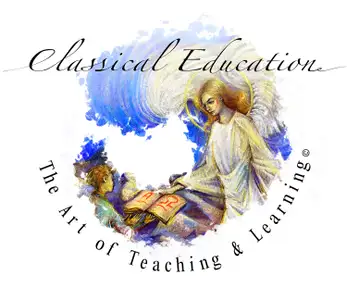Dr. Matthew Post on The Art of Teaching, Guided by Beauty
This episode begins by discussing the art of teaching and how it encompasses freedom which allows students to rest in a state of wonder. If we allow students to enjoy the ideas that they are learning, it captures the essence of teaching with beauty as the center of the lesson. The final moments of the episode discuss the importance of Homer's poetic work that points directly to the Christian idea of forgiveness.
About our Guest:
Dr. Matthew Post Assistant Professor of Humanities and Associate Director, Saint Ambrose Center for Catholic Liberal Education and Culture at the University of Dallas. He has spent his career teaching the Great Books of the Western tradition, having worked in Canada, Japan and Slovakia in addition to the U.S. In the Slovak Republic, he had the privilege to build a Great Books program at a school whose mission was to renew classical education after decades of communist rule had obscured the country’s history and traditions. His research explores how best to understand and promote virtue, service and leadership through education. His academic interests include the ancient Greeks, St. Augustine and St. Thomas Aquinas, the Enlightenment, the American Founding and German Idealism.
Show Notes
The art of teaching encompasses freedom which allows for students to rest in a state of wonder. If we allow students to enjoy the ideas that they are learning, it captures the essence of teaching with beauty as the center of the lesson. Beauty is not just about a master teacher conducting a symphony, but about all the teachers and the spirit of the school working in community because beauty has form and unity.
As Dr. Post unpacks the transcendentals (truth, goodness, and beauty). He explains that If a soul is disordered, the “good” helps to reorder the soul in order to know beauty. Dr. Post also explores where order comes from. The activity of making sense of an idea leads us to commune with or engage with truths that are unchanging. He builds upon these ideas and how they operate through good teaching.
The episode closes discussing the importance of the poetic Homer texts, and how they point us towards what true forgiveness looks like.
The episode closes discussing the importance of the poetic Homer texts, and how they point us towards what true forgiveness looks like.
Some topics in this episode include:
- What is beauty? and How did the Greeks approach beauty through poetry?
- What are the transcendentals?
- How does formation help students to recognize beauty?
- How do teachers balance The True, The Good, and The Beautiful in classroom instruction?
- How does constraining or forcing, The True, The Good, and The Beautifu affect a student when they go out into the world?
- The Greek importance of Kalos Agothas (kalokagathos) for the attainment of virtue through a genuine submission to truth.
- Approaching education with a spirit of reverence for truth to lay a foundation in beauty.
Books & Resources In This Episode
The Ethics of Beauty by Timothy Patitsas
The Ethics of Beauty by Timothy Patitsas
The Iliad and The Odyssey by Homer
Platonic Texts:
Platonic Texts:
- The Republic
- Timaeus
- The Symposium
Favorite Quote & A book that is neglected:
Quote: "I have kissed the hands that slew my children" - Homer
A neglected work that is worth looking at: The Captives (a play about slavery) by a Roman comedian, Plautus
Please Support us on Patreon
_________________________________________________________
Credits:
Sound Engineer: Andrew Helsel
Logo Art: Anastasiya CF
Music: Vivaldi's Concerto for 2 Violins in B flat major, RV529 : Lana Trotovsek, violin Sreten Krstic, violin with Chamber Orchestra of Slovenian Philharmonic
© 2022 Beautiful Teaching. All Rights Reserved

